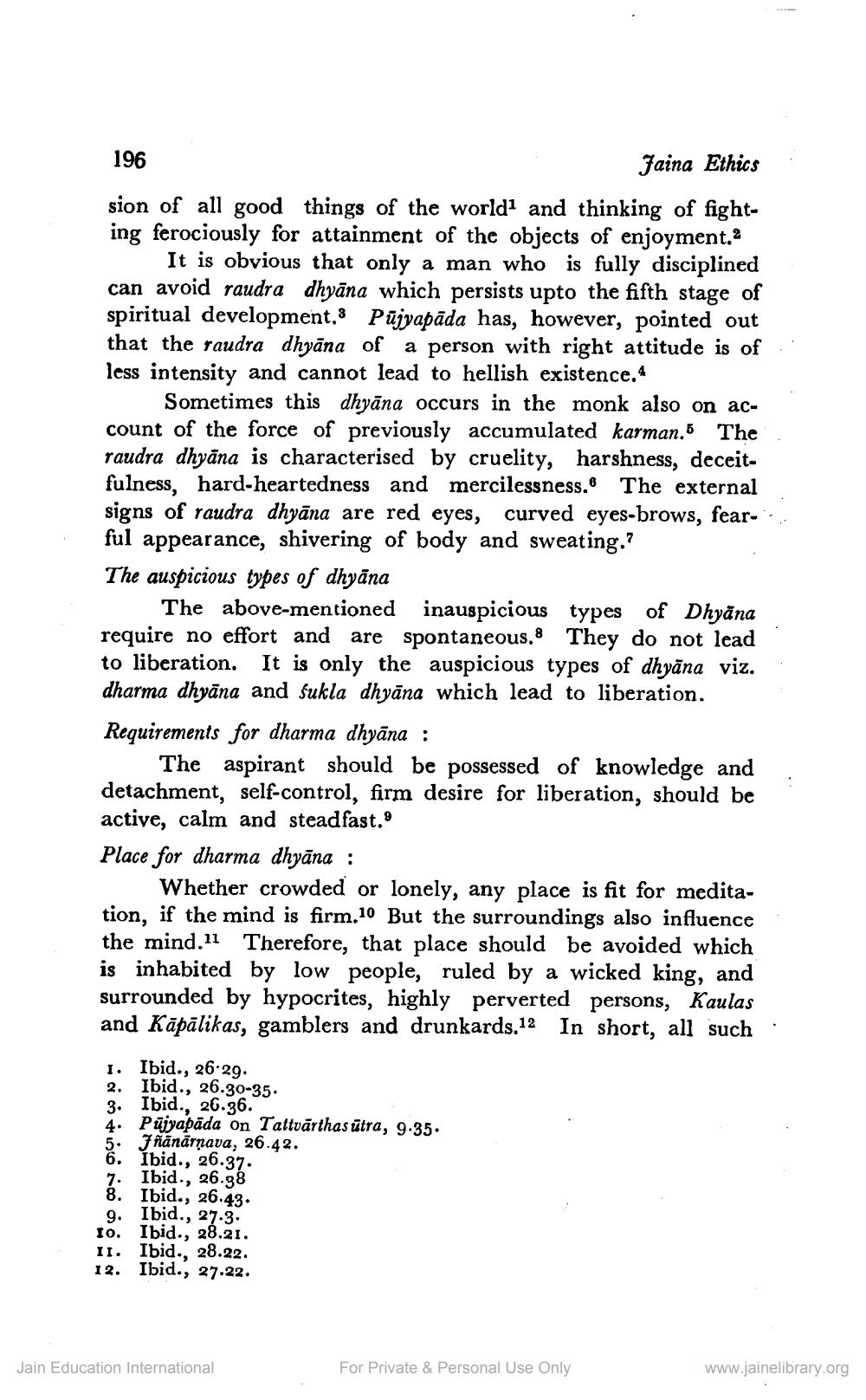________________
196
Jaina Ethics sion of all good things of the world1 and thinking of fighting ferociously for attainment of the objects of enjoyment.2
It is obvious that only a man who is fully disciplined can avoid raudra dhyāna which persists upto the fifth stage of spiritual development.3 Pūjyapāda has, however, pointed out that the raudra dhyāna of a person with right attitude is of less intensity and cannot lead to hellish existence.*
Sometimes this dhyāna occurs in the monk also on account of the force of previously accumulated karman. The raudra dhyāna is characterised by cruelity, harshness, deceitfulness, hard-heartedness and mercilessness. The external signs of raudra dhyāna are red eyes, curved eyes-brows, fearful appearance, shivering of body and sweating.? The auspicious types of dhyāna
The above-mentioned inauspicious types of Dhyāna require no effort and are spontaneous.8 They do not lead to liberation. It is only the auspicious types of dhyāna viz. dharma dhyāna and sukla dhyāna which lead to liberation. Requirements for dharma dhyāna :
The aspirant should be possessed of knowledge and detachment, self-control, firm desire for liberation, should be active, calm and steadfast. Place for dharma dhyāna :
Whether crowded or lonely, any place is fit for meditation, if the mind is firm.10 But the surroundings also influence the mind.11 Therefore, that place should be avoided which is inhabited by low people, ruled by a wicked king, and surrounded by hypocrites, highly perverted persons, Kaulas and Kāpālikas, gamblers and drunkards.12 In short, all such.
1. Ibid., 26.29. 2. Ibid., 26.30-35. 3. Ibid., 26.36. 4. Pujyapāda on Tattvārthasūtra, 9.35. 5. Jñānārņava, 26.42.
Ibid., 26.37. Ibid., 26.98 Ibid., 26.43
Ibid., 27-3. 10. Ibid., 28.21. II. Ibid., 28.22. 12. Ibid., 27.22.
cinco no
9.
Jain Education International
For Private & Personal Use Only
www.jainelibrary.org




